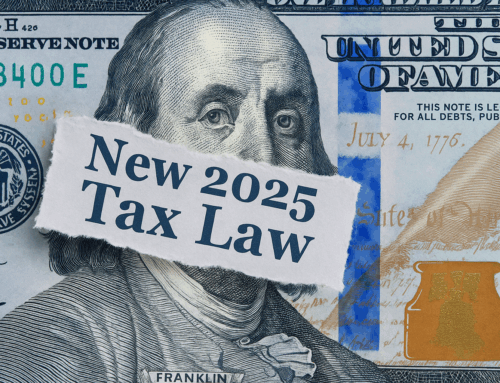When to Reconsider Your Family Office Investment Governance Model

As family wealth grows and the complexity of managing it increases, the governance structures put in place at the outset of a family office can become outdated or insufficient. A family office that began as a nimble operation managing a few investment accounts may struggle to maintain efficiency, transparency, and alignment when overseeing hundreds of millions in assets, multiple trusts, and multi-generational objectives. Strong investment governance is not just about having policies in place, it’s about enabling informed decision-making, managing risk, and ensuring accountability across stakeholders.
In this post, we explore the signs that indicate your family office governance model may be due for a refresh, how an Outsourced Chief Investment Officer (OCIO) can enhance your governance framework, and the tangible benefits of upgrading your investment oversight structure.
What Is Investment Governance, and Why It Matters
Investment governance refers to the system of policies, roles, processes, and reporting tools that guide how investment decisions are made, monitored, and evaluated. Effective governance provides clarity on who is responsible for strategic decisions, how investment guidelines are developed and maintained, and how performance and risk are tracked.
When done well, governance enables long-term strategic alignment, faster execution, greater resilience in periods of market stress, and reduced susceptibility to bias, conflict, or miscommunication. For families of substantial wealth, it is the backbone of a disciplined, repeatable, and scalable investment process.
Signs Your Governance Model May Be Outdated
Even well established family offices can find themselves operating under governance structures that no longer reflect their scale or complexity. Key signs that your model may need a refresh include:
- Reactive Decision-Making: Investment decisions are made on an ad hoc basis, often driven by individual preferences rather than a codified strategy.
- Unclear Roles and Responsibilities: Family members, advisors, and staff lack defined roles, leading to confusion or overlap in authority.
- Inadequate Documentation: No formal investment policy statement (IPS), inconsistent meeting minutes, or missing protocols for manager due diligence.
- Conflicted Advice: Reliance on advisors or managers who may not be acting in a fiduciary capacity or who have embedded conflicts of interest.
- Disjointed Reporting: Lack of consolidated performance reporting across accounts, asset classes, or entities.
- Legacy Structures: Family or investment committees that haven’t been restructured to reflect generational growth or expanded responsibilities.
When Is the Right Time to Reevaluate Governance?
There is no one-size-fits-all timeline, but several triggering events and inflection points often signal the need to revisit your governance framework:
- After a Significant Liquidity Event: The sale of a family business or large asset increases the complexity and responsibility of investment oversight.
- Growth in Asset Size: Crossing key thresholds (e.g., from $50M to $250M) often necessitates professionalizing systems, roles, and processes.
- Generational Transition: New generations bring different values, time horizons, and communication styles, requiring clearer structure and education.
- Performance Concerns: Difficulty benchmarking performance or inconsistent results could stem from unclear mandates or oversight gaps.
- Operational Risk: Rising workloads, turnover among key personnel, or lack of redundancy in decision-making may point to governance weaknesses.
How an OCIO Enhances Investment Governance
Engaging an Outsourced Chief Investment Officer (OCIO) introduces both expertise and objectivity to the governance conversation. The right OCIO partner acts not only as an investment manager, but also as a governance architect and fiduciary.
Key governance contributions of an OCIO include:
- Designing Decision Frameworks: Establishing or refining investment committees, subcommittees, and advisory boards with clear mandates and roles.
- Developing an Investment Policy Statement (IPS): Codifying objectives, asset allocation ranges, spending policies, liquidity targets, and evaluation criteria.
- Creating Accountability Systems: Implementing reporting tools and dashboards that track risk, performance, compliance, and manager contributions.
- Fiduciary Best Practices: Ensuring due diligence, manager selection, and monitoring processes are rigorous, conflict-free, and aligned with family values.
- Enhancing Transparency and Communication: Delivering consolidated, timely reporting and fostering dialogue across generations and stakeholder groups.
By providing disciplined execution and unbiased oversight, an OCIO strengthens the family office’s operational backbone, improves investment outcomes, and frees up the family and internal team to focus on strategic priorities.
Real-World Example: Governance Transformation in Practice
Consider a multi-generational family office with $300 million in assets spread across multiple trusts, foundations, and direct investments. As the next generation began assuming greater involvement, tensions arose around investment priorities, risk appetite, and philanthropic commitments.
The family engaged an OCIO to lead a governance transformation. Within 12 months, the OCIO:
- Facilitated family-wide workshops to articulate shared investment values
- Drafted a new IPS reflecting updated goals, liquidity needs, and ESG priorities
- Reorganized the investment committee structure, separating governance from implementation
- Consolidated performance reporting across all entities
- Built scenario models for stress testing and strategic planning
The result: reduced internal conflict, greater clarity of purpose, and improved execution across the investment portfolio.
Final Thoughts
Governance is not a luxury, it is a necessity for any family office that seeks to preserve and grow capital across generations. An outdated or informal governance structure can expose families to operational risks, missed opportunities, and intra-family conflict.
An OCIO partner brings clarity, structure, and continuity to the investment process. By serving as a fiduciary, strategist, and implementer, the OCIO helps families build governance systems that are resilient, adaptable, and aligned with long-term goals.
Whether you are preparing for generational transition, managing post-liquidity complexity, or simply seeking better alignment and control, it may be time to reevaluate your investment governance model, and elevate it to meet the future.
This information does not constitute investment advice and is not an offer to buy or sell a security. The material is provided for general information and educational purposes and is based on information provided to us by sources deemed to be reliable. All expressions of opinion are subject to change without notice in reaction to shifting market conditions. Examples provided are for illustrative purposes only and not intended to be reflective of results you can expect to achieve. Past performance is no guarantee of future results and asset values will fluctuate with changing market conditions. There is no guarantee that the views and opinions expressed in this document will come to pass. Investing in the market involves gains and losses and may not be suitable for all investors. All investments are uninsured and can lose value.
McNeill Capital, LLC (MC) is a registered investment advisor. Reference to registration does not imply any particular level of skill. MC does not provide tax or legal advice. MC is not an attorney. Estate planning can involve a complex web of tax rules and regulations. Consider consulting a tax or legal professional about your particular circumstances before implementing any tax or legal strategy. The information provided here is of a general nature and is not intended to address the specific circumstances of any individual or entity. In specific circumstances, the services of a professional should be sought.
©2025 McNeill Capital, LLC






